Today’s Current Affairs: 31st July 2024 for UPSC IAS exams, State PSC exams, SSC CGL, State SSC, RRB, Railways, Banking Exam & IBPS, etc
Table of Contents
Report On Currency And Finance : 2023-2024
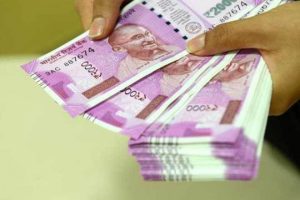
As per the ‘Report on Currency and Finance (RCF) for the year 2023-24’ released by the Reserve Bank of India (RBI), India’s digital economy is set to constitute 20% of the country’s GDP by 2026, doubling its current contribution of 10%.
- This significant growth projection underscores the transformative potential of digitalization in finance and its far-reaching impact on India’s economy.
Report on Currency and Finance:
- It is an annual publication of the RBI.
- The report covers various aspects of the Indian economy and financial system.
- The theme of the “Report is “India’s Digital Revolution.”
- It focuses on the transformative impact of digitalization across various sectors in India, particularly in the financial sector.
Highlights from the Report on Currency and Finance 2023-24:
- The evolution and adoption of technological advancements have led to massive improvement in deepening of digital financial services.
- The potential for expanding financial inclusion in India by application of digital technologies is high in view of existing conditions.
- First, the progress of financial inclusion in India is evident in the Reserve Bank’s Financial Inclusion Index and narrowing account access gap between income groups.
- Second, in rural India, 46% of the population consists of wireless phone subscribers and 54% are active internet users.
- Third, given that more than half of FinTech consumers are from semi-urban and rural India and more than a third of digital payment users are from rural areas there is potential for furthering digital penetration and closing the rural-urban gap.
- Over two lakh gram panchayats have been connected through BharatNet in the last decade, enabling provision of services like e-health, e-education and e-governance in rural areas.
- Although internet penetration in India was at 55% in 2023, the internet user base has grown by 199 million in the recent three years.
- India’s cost per gigabyte (GB) of data consumed is the lowest globally at an average of Rs. 13.32 per GB.
- India also has one of the highest mobile data consumption in the world, with an average per-user per-month consumption of 24.1 GB in 2023.
- There are about 750 million smartphone users, which is expected to reach about one billion by 2026.
India is expected to be the second largest smartphone manufacturer in the next five years. - The digital economy currently accounts for 10% of India’s GDP.
- By 2026, this figure is expected to double, contributing to 20% of GDP, driven by rapid advancements in digital infrastructure and financial technology.
- Digitization is strengthening banking infrastructure and public finance systems, optimizing direct benefit transfers and tax collections.
International Tiger Day 2024:

International Tiger Day is celebrated every year on 29th July, to raise awareness about the magnificent yet endangered animal.
- The day is a reminder of the collective effort of 13 tiger range countries to double the wild tigers’ population by 2022 through the TX2 global goal.
- The TX2 goal is a global commitment to double the world’s wild tigers by 2022.
- The goal has been set by the World Wildlife Fund (WWF) through the Global Tiger Initiative, Global Tiger Forum and other critical platforms.
- The day was first established in 2010 at the Saint Petersburg Tiger Summit.
- The main aim is to urge the international community to intensify efforts for wildlife protection through expanding protected areas, promoting sustainable livelihoods, and maintaining sufficient forest area in tiger roaming nations.
Prompt Corrective Action Framework : RBI
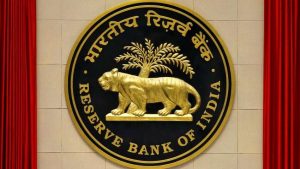
The Reserve Bank of India (RBI) has introduced a Prompt Corrective Action (PCA) framework for Urban Cooperative Banks (UCBs).
- This framework aims to enable timely supervisory intervention and ensure UCBs implement necessary remedial measures to restore their financial health.
- It replaces the existing Supervisory Action Framework (SAF) last revised in January 2020.
- The new PCA framework is designed to provide flexibility by allowing entity-specific supervisory action plans based on individual risk assessments.
- It aligns with similar frameworks for Scheduled Commercial Banks and Non-Banking Financial Companies while maintaining supervisory rigor.
- The revised framework focuses on capital, asset quality, and profitability, particularly targeting larger UCBs for intensive monitoring.
- It will not apply to small Tier 1 UCBs. The RBI has categorized UCBs into four tiers for regulatory purposes.
SAFAL Test Cycle 2024 To Reduce Exam Stress : CBSE

CBSE Launches SAFAL Test Cycle to Ease Exam Pressure
- Objective Assess students of Classes 5 and 8 on core concepts instead of rote learning with no preparation required.
- SAFAL (Structured Assessment For Analyzing Learning) aligns with NEP 2020 to reduce exam fear. It started with 80 schools in 2022, expanded to 1,887 schools in 2023.
- In 2024, over 10 lakh students from 11,000 schools are participating.
- Implementation SAFAL will test science, math, and languages in 75-minute (Class 5) and 90-minute (Class 8) sessions.
Assessment Levels 1. - Below Basic (two grades lower skills) <br> 2. Basic (one grade lower skills) <br> 3. Proficient (current grade skills) <br> 4. Advanced (above grade skills)
- Scoring Scores are scaled for difficulty, not percentages, to act as a diagnostic tool rather than ranking students.
- Future Plans Expand to all 29,000 CBSE schools by 2025.
- Goal Identify learning gaps and plan targeted interventions without adding pressure on students.
- PARAKH (Performance Assessment, Review, and Analysis of Knowledge for Holistic Development): Independent unit within NCERT, established in 2023.
Oropouche Fever : First Ever Death
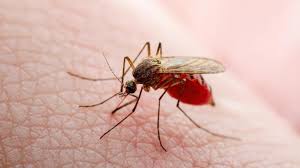
Brazil has reported its first-ever deaths from Oropouche fever, a mosquito-borne disease with symptoms similar to dengue, but severe cases are rare.
- The virus, first detected in Trinidad and Tobago in 1955, has spread to Latin America, the Caribbean, and recently to Europe, with Italy reporting its first case in June 2024.
- Oropouche fever is transmitted by infected midges and mosquitoes, and symptoms start between four and eight days after the bite, including fever, headaches, pain, and sometimes nausea.
- Most patients recover in about seven days, and there is no vaccine or specific treatment.
- The disease’s spread may be influenced by climate and environmental factors such as deforestation, but much about its transmission remains understudied.
Mekedatu Project : Karnataka Govt
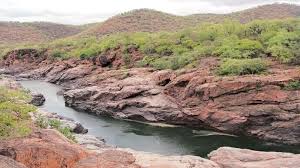
Karnataka Chief Minister(CM) has highlighted the Mekedatu balancing reservoir project as a key solution to address water-sharing issues with Tamil Nadu during monsoon distress years, asserting that the project would benefit both states, particularly in times of water scarcity.
- The Mekedatu multi-purpose project aims to build a balancing reservoir near Kanakapura to provide drinking water to Bengaluru and generate 400 MW of power.
- Mekedatu is a deep gorge at the confluence of the Cauvery and Arkavathi rivers.
- The Supreme Court, has settled the sharing of Cauvery water, with Karnataka required to release 177.25 thousand million cubic (tmc) feet, but only during a normal year, not in a year of deficit rainfall. Tamil Nadu has a right to 177.25 tmc ft, but only during a normal monsoon.
- Karnataka Chief Minister(CM) emphasises that the Mekedatu reservoir will help meet Bengaluru’s drinking water needs and enable Karnataka to release water to Tamil Nadu during a distress year, as 65 tmc ft of water can be impounded, which would otherwise end up in the sea.
- However, Tamil Nadu, the lower riparian state, opposes the project as it argues that the Mekadatu dam would significantly reduce the water flow downstream, negatively impacting the state’s agricultural activities and water supply, and the Cauvery tribunal and Supreme Court order require the lower riparian state’s no-objection for any project on the Cauvery river.
Discovery Of Dark Oxygen:
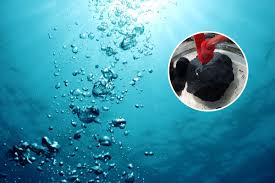
Scientists reported an unknown process is producing oxygen deep in the world’s oceans, where photosynthesis can’t occur due to the lack of sunlight.
- This discovery is significant because oxygen supports marine life and suggests that there may be previously unknown ecosystems.
- Scientists observed an unexpected increase in oxygen concentration in some areas of the abyssal zone (where sunlight is extremely low and insufficient for photosynthesis).
- Researchers noted that this finding represents a new source of oxygen where photosynthesis does not occur, and termed it as ‘dark oxygen’.
- Typically oxygen is provided by the ‘Great Conveyor Belt’, a global circulation system which should decrease without local production, as small animals consume it.
- One hypothesis for oxygen production is that polymetallic nodules are transporting electric charges that split water molecules, releasing oxygen.
- Polymetallic nodules are lumps of iron, manganese hydroxides, and rock found on the ocean floor.
- However, the exact energy source for the nodules’ ability to produce oxygen remains unclear.
- The study was conducted in the Clarion-Clipperton Zone Region off Mexico’s west coast.
- The Zone is noted for having the highest concentration of polymetallic nodules in the world.
Shiksha Saptah 2024:
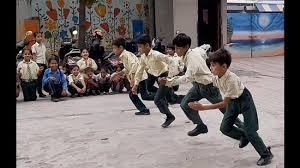
The Union Ministry of Education celebrated the 4th anniversary of the National Education Policy (NEP) 2020 with a week-long campaign called “Shiksha Saptah.”
- This campaign is designed to promote and celebrate the achievements and objectives of NEP 2020.
Shiksha Saptah:
- Vidyanjali Program is an initiative by the Department of School Education and Literacy, that connects community members and volunteers with government and government-aided schools through an online portal.
- The Vidyanjali portal enables alumni, teachers, scientists, and others to contribute services, materials, or expertise to schools across India, enhancing the learning environment by integrating schools, volunteers, and the community in line with NEP 2020 objectives.
- Tithi Bhojan: Under this initiative, people from the community celebrate important days such as childbirth, marriage, birthdays etc. by contributing to the Mid Day Meal Scheme.
- Tithi Bhojan is not a substitute to Mid Day Meal but it supplements or complements Mid Day Meal.
Cooking competitions at Block, District and State levels are organised to promote innovative menus.
National Education Policy 2020:
- The National Education Policy (NEP) 2020 aims to address India’s evolving development needs by overhauling the education system to meet 21st century goals and Sustainable Development Goal 4 (SDG4), while preserving India’s cultural heritage.
- It replaced the National Policy on Education, 1986, which was modified in 1992.




